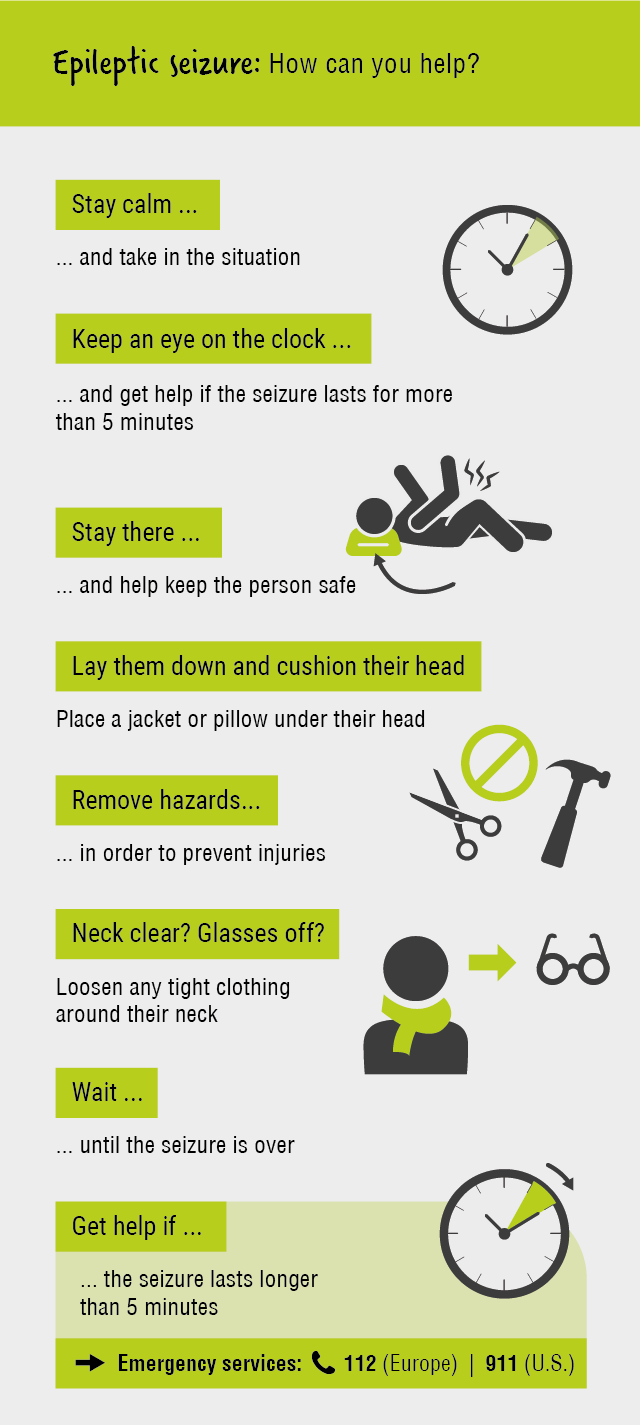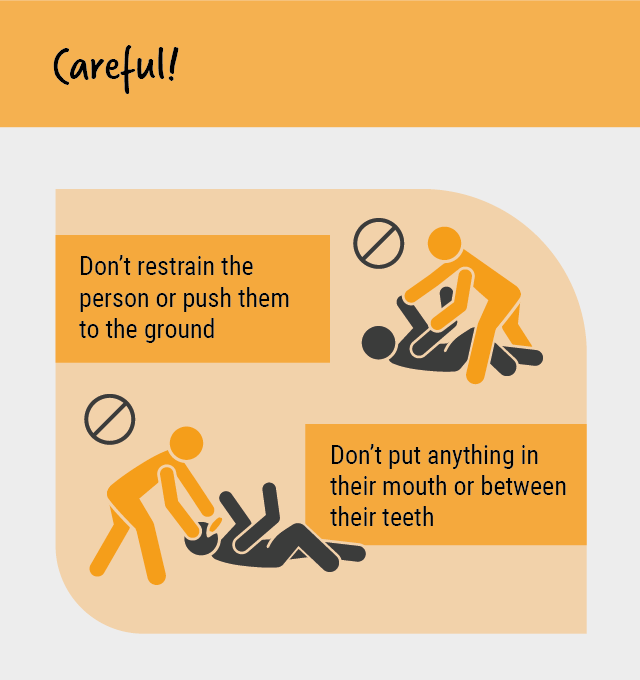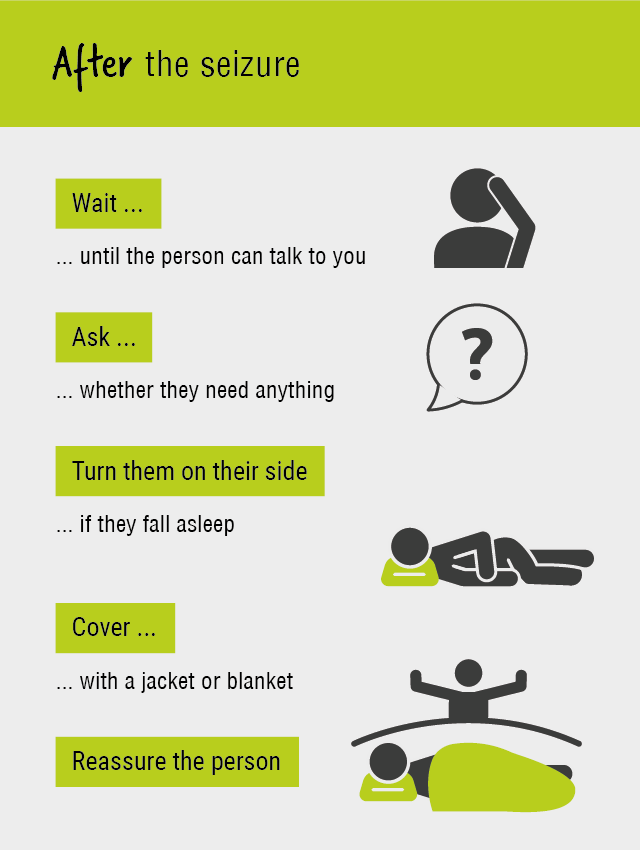What to do if someone has an epileptic seizure

Most people aren't sure how to react if someone has an epileptic seizure. It is quite straightforward, though. Just a few rules can help.
There are different types of epileptic seizures. The best reaction will depend on the type and severity of the seizure, as well as the general situation. The main thing is to stay calm and protect the person having the seizure from harm. Most seizures aren't dangerous and pass within a few minutes.



